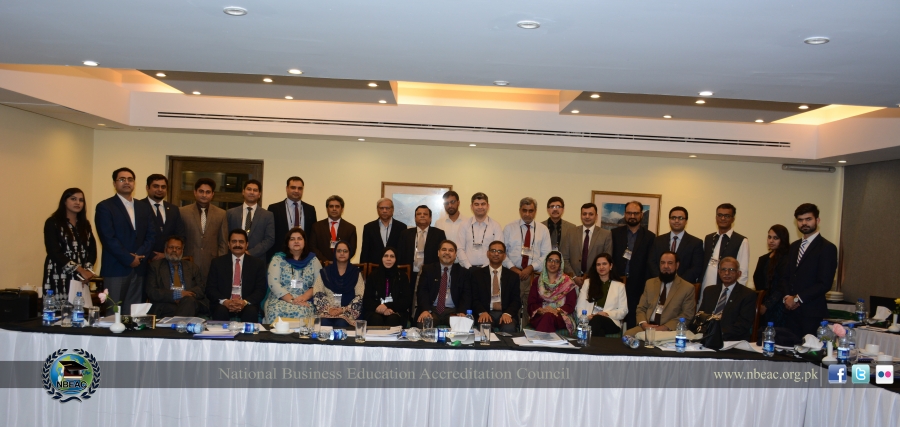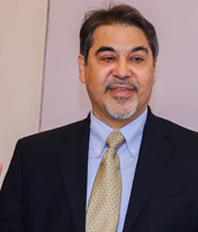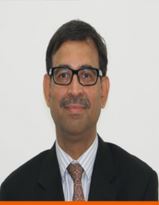Workshops
Workshop on "Leadership Challenges of a Business School"

|
Workshop - “Leadership Challenges of a Business School” |
||||||||||||||||||||||||||||||||
|
Purpose: |
||||||||||||||||||||||||||||||||
| The top academic leadership of the University, Institute or Business School sets the direction for the leadership style, organizational culture and long term direction. Similarly, the strategic planning helps the business school understand the essence of a locally and globally competitive marketplace. Also, the relevant management practices helps the leadership in formulating the key business and management principles. Moreover, the process help the school develop a rigorous, relevant, rewarding and competitive degree programs, executive education courses, research, consulting, linkages and community outreach enterprises. | ||||||||||||||||||||||||||||||||
|
Objectives: |
||||||||||||||||||||||||||||||||
|
||||||||||||||||||||||||||||||||
|
Learning Outcomes: |
||||||||||||||||||||||||||||||||
|
The participants will develop an understanding of the followings by the end of this workshop:
|
||||||||||||||||||||||||||||||||
|
Who Should Attend: |
||||||||||||||||||||||||||||||||
|
The workshop is designed for:
|
||||||||||||||||||||||||||||||||
|
Sessions: |
||||||||||||||||||||||||||||||||
|
|
||||||||||||||||||||||||||||||||
|
Consultants: |
||||||||||||||||||||||||||||||||

Dr. Farrukh Iqbal |
|
|||||||||||||||||||||||||||||||
|
Transfers, Refunds & Replacement: |
||||||||||||||||||||||||||||||||
|
||||||||||||||||||||||||||||||||
|
Notes: |
||||||||||||||||||||||||||||||||
** If unforeseen circumstances occurs during the workshop and one day before the scheduled workshop, NBEAC will not refund the registration fee. |
||||||||||||||||||||||||||||||||
The consultants also shared the best practices and an array of acknowledged and provided solutions that may work within a particular set of circumstances. Discussions were carried out regarding the better leadership style, relevant best management practices to all facets of administration, Future direction of the business education and use of technology for progression of business schools.
The workshop was attended by more than 30 participants and it involved healthy discussions regarding the problems the Business Schools were facing in their Leadership and guidance was being provided relating to all the challenges being faced by the Business Schools and a healthy Feedback Session was being held for the participants.
The consultants for this workshop were Dr. Farrukh Iqbal, Dean and Director,(Institute of Business Administration (IBA),Karachi) and Dr. Shaukat Ali Brah, Former Rector and Dean (Karachi School of Business and Leadership (KSBL),Karachi) who are among the top consultants in this field.
The one day workshop consisted of 4 sessions, the 1st session was based on Leadership and Strategic Planning, 2nd session was based on a Case study of IBA, Karachi which focused on how to transform an Academic Institution. The 3rd Session focused on Planning for Progress which provided information and guidelines for BSIS Assessment Criteria and Impact of Research. The 4th session which was the last session focused on the Future of the Business Education in which Dr. Farrukh Iqbal talked about the Future of Work, Business Education and the role of AACSB.
In the end of the workshop, Honorable Consultants and Participants were being awarded with their Certificates by Vice Admiral Muhammad Shafiq, Rector of Bahria University.
Powered by iCagenda
About NBEAC
NBEAC has three main functions: accreditation, training and networking. In its accreditation function, it develops and implements standards to improve the quality of business education in Pakistan. In its training function, it provides opportunities to faculty and managers to learn about quality standards and related matters. In its networking function, it provides a forum for business education professionals to learn from each other through conferences and seminars.



 Dr. Shaukat Ali Brah
Dr. Shaukat Ali Brah